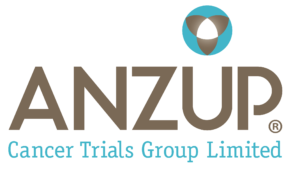Tax Appeal
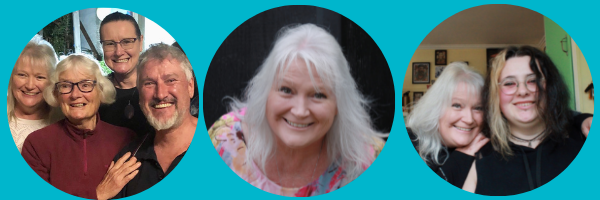
“I firmly believe a clinical trial saved my life” Juliet says.
There is no good day to hear ‘you have cancer’. But for Juliet it was the worst possible timing.
On the eve of her daughter’s 16th birthday, she was diagnosed with kidney cancer.
Juliet put on a brave face to avoid upsetting her daughter, her heart was silently breaking. Doctors only gave her a year or two to live, at the most. As more results came back, that was reduced to just 8 months.
“It was a shock,” Juliet says. “I wanted to live.” Her greatest worry was how her daughter would manage without a mum.
While Juliet had tummy and back pain, for many kidney cancer is a silent killer.
Often people have no symptoms at all. And the disease is increasingly common. For those with non clear-cell kidney cancers like Juliet’s, there have been no treatments and no hope of survival.
It is the work of ANZUP to find answers – helped by our members and supporters like you. We do this by conducting clinical trial research into ‘below the belt’ cancers involving the kidney, prostate, bladder, penis and testicles.
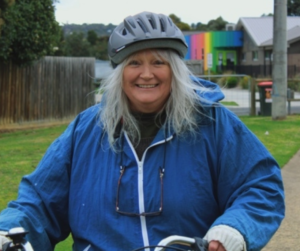
To continue our critical research that people like Juliet urgently need, please will you donate today?
Juliet’s type of kidney cancer was aggressive and considered untreatable. It covered her whole kidney and had already spread to her lungs.
The opportunity to be on the ANZUP’s UNISoN trial gave her some hope to cling to. For the trial, Juliet took an immunotherapy drug, nivolumab, which primed her immune system to recognise and destroy her cancer cells.
Juliet’s doctor, Associate Professor David Pook, explains the exciting progress of the kidney cancer clinical trials he is working on.
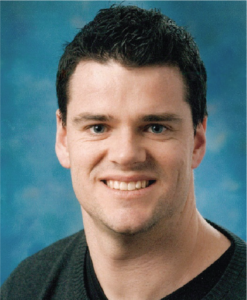 I am the principal investigator for ANZUP on multiple international clinical trials treating urological cancers (including kidney cancer) with new drugs and combinations of immunotherapy.
I am the principal investigator for ANZUP on multiple international clinical trials treating urological cancers (including kidney cancer) with new drugs and combinations of immunotherapy.
Symptoms of kidney cancer are blood in the urine, a pain or dull ache in the side of the lower back that is not due to an injury, a lump in the abdomen, rapid, unexplained weight loss, constant tiredness and fever not caused by a cold or flu.
But many people with kidney cancer have no symptoms. Many are diagnosed with the disease when they see a doctor for a different reason.
Juliet has a type of kidney cancer called non clear-cell kidney cancer. In Australia there are no treatment options for this type of cancer funded by the PBS.
Juliet agreed to take part in an ANZUP trial testing the immunotherapy drug, nivolumab. In doing this, she is helping future patients who develop this disease, by allowing us to test how well this drug works in this situation.
Currently, I am testing another drug called cabozantinib in non clear-cell kidney cancers like Juliet’s which are no longer responding to immunotherapy.
I am also involved in testing immunotherapy as a preventer of cancer returning after surgery. This is exciting as a recent trial has shown that this is effective. It’s a positive time with kidney cancer treatment now at a transition point.
For a while, treatment options for kidney cancer included surgery alone.
We now have more to offer as a standalone treatment or in combination. Targeted therapies are now being used and target specific molecules in cells to block cell growth.
We are also well aware of the role immunotherapy plays in cancer treatment and are excited to be part of clinical trials of immunotherapy in kidney cancer.
Immunotherapy works to enhance the immune system of your body … to take ‘the handbrake’ off the immune system by blocking so-called checkpoints. This allows the immune system to attack kidney cancer and for the first time we have seen kidney cancer disappear in some patients.
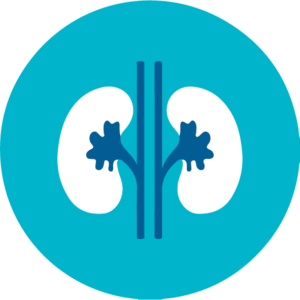 We are eager to explore how immunotherapy can be integrated with existing therapies and current treatment combinations.
We are eager to explore how immunotherapy can be integrated with existing therapies and current treatment combinations.
Current trials will allow us to understand how this form of treatment will benefit patients with kidney cancer – both the rare and common forms of the disease.
All the research being undertaken suggests we will witness a rapid increase in the number of available kidney cancer treatments in the near future leading to some people having very positive outcomes from their kidney cancer treatment.
At the same time, it is likely that more targeted immunotherapy treatments that are now being tested in other cancers will be modified for use in kidney cancer and enter clinical trials – further improving outcomes in the years to come.
Associate Professor David Pook is involved with very promising clinical trials. But ongoing funding is needed so he can keep up this work and help people like Juliet.
It’s been three years since Juliet was given 8 months to live and her cancer is still stable. She knows she is only here today because of the UNISoN clinical trial.
“These ANZUP trials just need so much support – I can vouch that they 100% saved my life,” says Juliet. “I’ve well and truly exceeded my expiry date!”
Last year, 4,377 Australians were told they had kidney cancer, making it the seventh most diagnosed cancer in Australia. But thanks to clinical trials, people’s prospects are improving.
“It is exciting to be able to say kidney cancer treatment is now at a transition point,” says Associate Professor David Pook, who is the Deputy Chair of ANZUP’s Kidney Cancer Subcommittee.
“Targeted therapies are now being used and target specific molecules in cells to block cell growth.”
“For the first time we have seen kidney cancer disappear in some patients.”
With your help now, we can keep learning more about kidney cancer and other ‘below the belt’ cancers. This includes studying the changes the disease causes in cell function, which future medicines could target.
The gift you can give people like Juliet is time.
When Juliet was diagnosed, her greatest hope was holding on until her daughter turned 18 so she could set her up in life. She made it and her new goal is to celebrate her daughter’s 21st birthday.
Will you help Juliet and many others to see the milestones they’re dreaming of?
Please give to ANZUP today and enable treatment advances that could save the lives of more mums, dads, siblings, and friends who we love.
Your tax-deductible donation made by 30 June can be claimed as a tax refund this year and can be a game-changer for people who will be diagnosed with kidney cancer this year.
